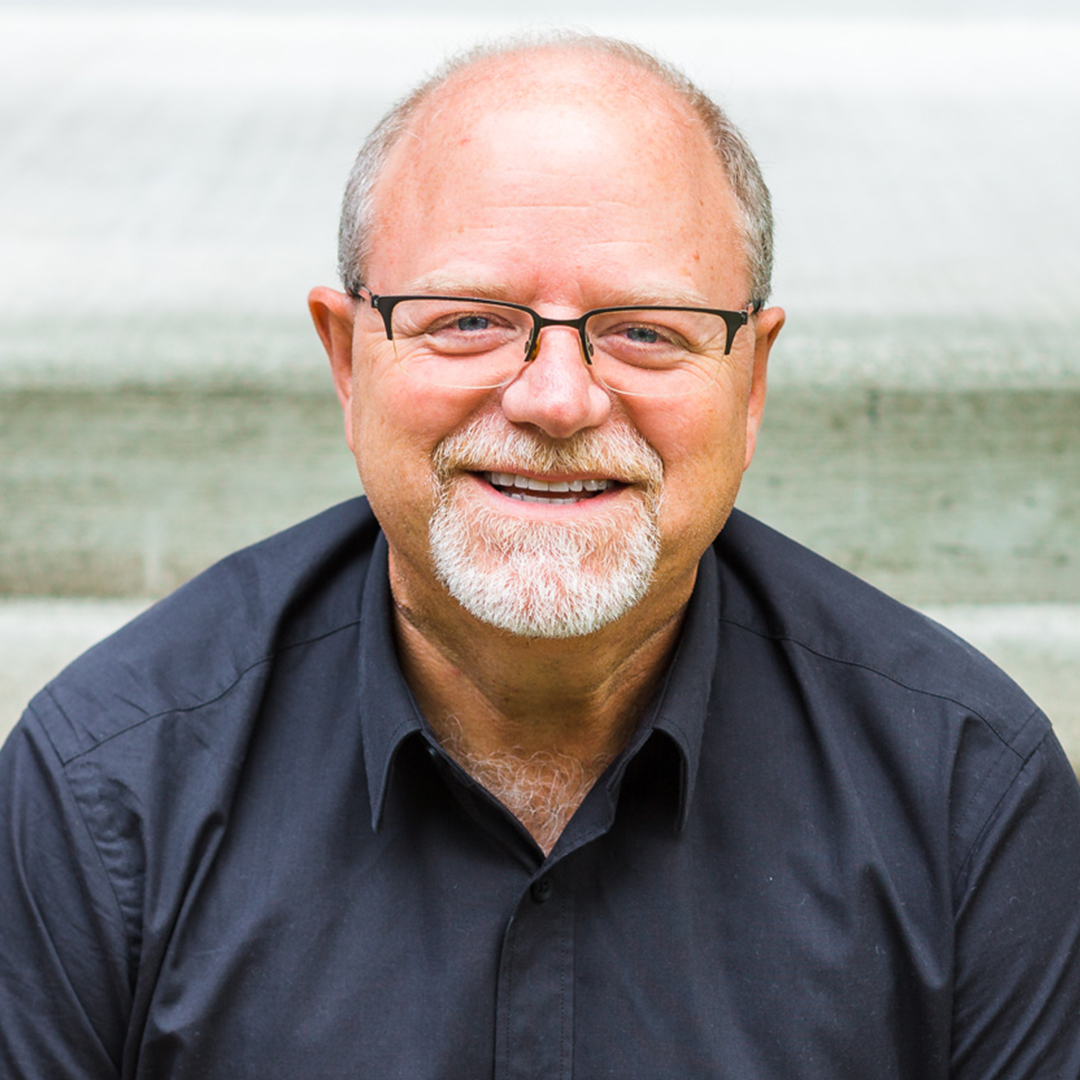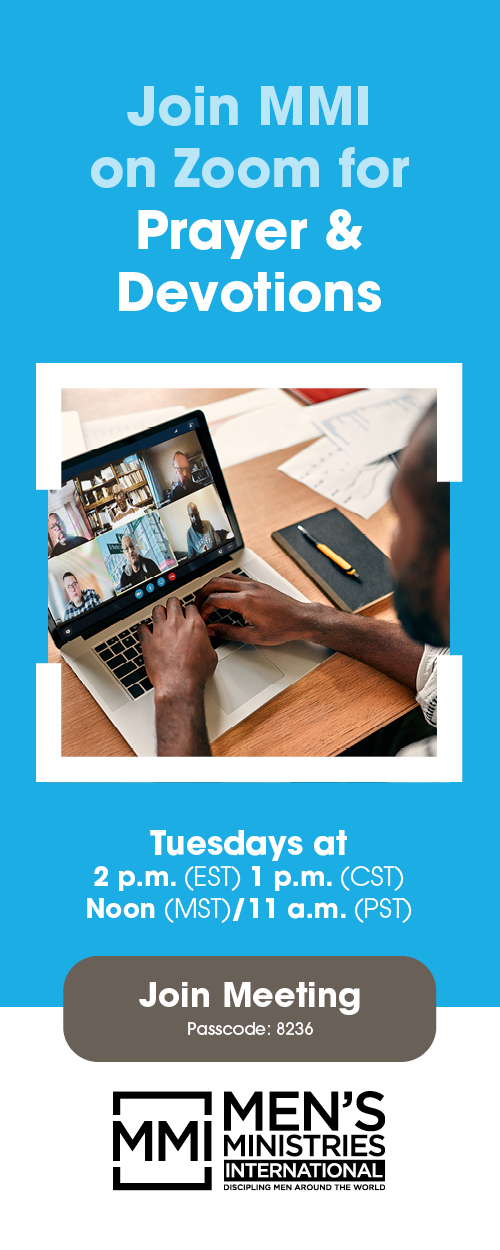
Bishop Keith Cowart
Bishop Keith Cowart, D.Min., oversees Free Methodist ministries along the Eastern Seaboard, in the South Central United States and also in Europe, the Middle East and Asia. He was elected a bishop of the Free Methodist Church – USA at General Conference 2019. He previously served as the superintendent of the Southeast Region after 21 years as the founding lead pastor of Christ Community Church in Columbus, Georgia.
by Bishop Keith Cowart
“For you were once darkness, but now you are light in the Lord. Live as children of light” (Ephesians 5:8)
The first three chapters of Genesis describe a world yet untainted by the effects of sin. One of the most beautiful features of this world is the relational harmony that exists on both the divine and human levels. Adam walks easily with God in the cool of the day while his union with Eve is described in terms that speak of transparency (naked) and emotional security (unashamed). Living free of the darkness of sin, Adam and Eve could be transparent because there was nothing to hide and secure because there was nothing to fear.
There is something deep inside all of us that longs for the world of Eden that ended so abruptly and tragically when sin entered the picture. We know all too well what it’s like to live in a world where transparency has given way to fig leaves and security is found in hiding. And yet, we Christians dare to believe that something of Eden has been restored because Jesus came into the world. John said of Him, “In him was life, and that life was the light of all mankind. The light shines in the darkness, and the darkness has not overcome it” (John 1:4–5).
When I pastored a local church, one of my leadership mantras was, “God operates in the light; Satan operates in the dark.” That conviction was the basis of one of our most important operational values as a church: We keep all things in the light at all times. It is also the driving force behind one of our denomination’s founding freedoms. B.T. Roberts and the early Free Methodists forbade membership in secret societies because they believed “Christians must keep themselves free to follow Christ and obey the will of God.”
In his position paper, “Above Board,” Bishop Emeritus Matthew A. Thomas brings this 19th century conviction into clear focus for the 21st century church. Going well beyond the scope of abstaining from membership in secret societies, Thomas applies the principle of “living in the light” to everything from church finances and board meetings to social media practices. In doing so, he reflects a truth exemplified in the life and teachings of Jesus and the Apostles: walking in the light is meant to encompass every aspect of a believer’s life and Christian community.
Jesus declared that those who belong to him are the “light of the world” (Matthew 5:14–16). After reminding us that we have been rescued from darkness and brought into the light of Jesus Christ, Paul exhorts us to “live as children of light” (Ephesians 5:8). John challenges believers to always choose light over darkness because, “God is light; in him there is no darkness at all” (1 John 1:5). And Peter boldly declares, “But you are a chosen people, a royal priesthood, a holy nation, a people belonging to God, that you may declare the praises of him who called you out of darkness into his wonderful light” (1 Peter 2:9).
If we fail to understand the connection between the way we operate relationally and God’s nature as One who is light, we are likely to view relational guidelines as restrictive rules rather than guardrails meant to protect and keep us in alignment with God’s character and good purposes. We simply must understand that choosing to operate outside these guardrails is akin to putting out a “welcome” sign to an enemy whose agenda is always to steal, kill and destroy (John 10:10). So what does it look like to steer clear of the darkness and live in the light in practical terms? Perhaps it would be helpful to consider that question on three levels: personal, relational, and corporate (church).
Living in the Light Personally
On the personal level, living in the light begins with integrity. Integrity is like a wheel with many spokes, all of which are attached to a single hub. The spokes represent all the roles and responsibilities of my life. The hub represents my core identity as a dearly loved son or daughter of God and fully devoted follower of Jesus. To the degree that every aspect of my life is firmly rooted in that core identity, I am free to be the same person at all times and in all situations, eliminating the need to hide behind carefully constructed personas designed to meet the perceived expectations of others. While living this way may feel risky at first, we soon discover it is far easier to live for an audience of One than it is to continually try to anticipate what others want us to be and then strive to meet those expectations.
Living in the light also involves confession of sin. God’s Word speaks of confession in two realms. First, there is the vertical realm. We confess our sins to God because our sin is ultimately against Him. The fruit of vertical confession is forgiveness (1 John 1:9). Second, we are also called to confess our sins to “one another.” You might ask, “If God has already forgiven me, why do I need to confess to others?” James answers that question by revealing that the fruit of mutual confession is healing (James 5:16). If we think of healing in terms of wholeness, the picture becomes clear. When we hide our sin (keep it in the dark) while attempting to appear as though we are living in the light, there is a sense in which our souls become fractured. But when we bring our sin out of the darkness into the light, integrity is restored, and we are set free from the power of secret sin to live as whole (healed) persons.
Of course, this doesn’t mean that everyone should know everything about my life, but it does mean that there is nothing in my life that someone doesn’t know about. This is one example of how we Protestants overreacted to the Roman Catholic practice of priestly confession. While we were right to challenge the idea that we need an intermediary to get to God, we failed to understand the tremendous benefit of bringing our sin into the light on both the vertical (divine) and horizontal (human) realm.
Living in the Light Relationally
Living in the light relationally begins with the very way we speak to one another. Jesus’ admonition to “let your ‘yes’ be ‘yes,’ and your ‘no,’ ‘no,’” is a call to speak in ways that are simple, clear and unambiguous (Matthew 5:37). Likewise, when asked how one should respond to a brother or sister who sins against them, Jesus instructed His disciples to go directly to the individual involved, only bringing others into the situation if the direct approach failed to bring about resolution (Matthew 18:15–16). If Jesus would insist that we deal with matters of sin directly, surely he would have us do the same anytime we have questions, concerns, or disagreements with others. The direct approach keeps the matter in the light and keeps God in the picture. Operating in the dark by engaging in gossip, slander, triangulation, anonymous communications, or the creation of secret alliances takes God out of the picture and opens the door to our enemy. The result is always the loss of God’s best and sometimes tragically destructive.
If God’s Word is clear when it comes to how we should operate relationally, why do we find it so difficult to speak and engage openly and directly with one another? Fear and control are two likely obstacles. The fear of confrontation in itself is a challenge for many of us. The fear of rejection, betrayal or even abuse are also very real possibilities. While the world seems increasingly obsessed with safety, God seems to be more concerned with growth and maturity, both of which almost always require a measure of risk and discomfort. This is the thought behind Paul’s plea with the Ephesians to “grow up” by learning to “speak the truth in love” (Ephesians 4:15).
Control is another likely culprit. When we find ourselves operating in ways that take us out of the light (open, direct) and into the dark (secret, indirect), it is often because we want to control the outcome. We probably don’t think of it this way, but our desire for control likely reveals one of two things: either I want what I want more than I want what God wants or I don’t trust God to bring about His purposes through or in spite of the proper channels.
Confronting our own fears and dying to the need to be in control are essential in learning how to live in the light.
Living in the Light Corporately
If fear and the desire for control are obstacles on the personal level, they are magnified tenfold when it comes to living in the light in our local churches, conferences, or even denomination. The stakes are also much greater. Churches that choose to operate in the light bring life to multitudes and can even transform communities. On the contrary, churches that operate in the dark leave in their wake broken lives and a tainted testimony to a watching world.
It would be easy, quite frankly, to recount the many ways we tend to fail on this front. A more challenging, but vastly more helpful, exercise would be to envision what it might look like if we truly devoted ourselves to living in the light together.
I envision a community in which:
- Spiritual brothers and sisters draw strength and encouragement from one another because someone always has their back and no one whispers behind their back.
- The “grapevine” that so often delivers messages distorted by personal agendas has withered on the vine because members have discovered the beauty and clarity of direct communication.
- Leaders are free to invest most of their time and energy in creative and meaningful work because they’re rarely distracted by murmurs of discontent and wondering just how many people are truly represented by the one who claims to speak for others.
- Ministry teams are strong, healthy, and always improving because members who have ideas or concerns freely approach leaders with the confidence they will be heard, taken seriously, and received non-defensively.
- Members give joyfully and generously because the finances of the church are always handled with integrity and transparency.
- The trash can that holds anonymous notes, emails and letters is always empty because members are mature and secure enough to speak the truth in love.
- Members are particularly careful on social media when it comes to controversial issues, preferring instead to dialogue in settings that allow them to tell their stories, listen deeply, move beyond simplistic and divisive responses, and prayerfully ask God for the wisdom and grace to love each other well.
- There is never a need for a sidewalk meeting because board members have discovered the miracle of discerning God’s will together through prayer, bringing their biases into the light, and trusting God to lead them to agreement (see my guide, “Spiritual Discernment and Decision-Making,” that follows this article).
If this sounds more like fantasy than a realistic vision, perhaps it is because our spiritual eyes have become so adjusted to the darkness that we’ve forgotten what it is like to live in the light of day. Such a condition is particularly dangerous in these days of such great uncertainty, social upheaval, and extreme polarization, all of which our enemy gleefully uses to stir up our fears and desires for control. It is in times like these that we must stand firmly in the truth of who we are as the people of God:
“But you are a chosen people, a royal priesthood, a holy nation, a people belonging to God, that you may declare the praises of him who called you out of darkness into his wonderful light. … Dear friends, I urge you, as aliens and strangers in the world, to abstain from sinful desires, which war against your soul. Live such good lives among the pagans that, though they accuse you of doing wrong, they may see your good deeds and glorify God on the day he visits us” (1 Peter 2:9, 11-12).+

Bishop Keith Cowart
Bishop Keith Cowart, D.Min., oversees Free Methodist ministries along the Eastern Seaboard, in the South Central United States and also in Europe, the Middle East and Asia. He was elected a bishop of the Free Methodist Church – USA at General Conference 2019. He previously served as the superintendent of the Southeast Region after 21 years as the founding lead pastor of Christ Community Church in Columbus, Georgia.









